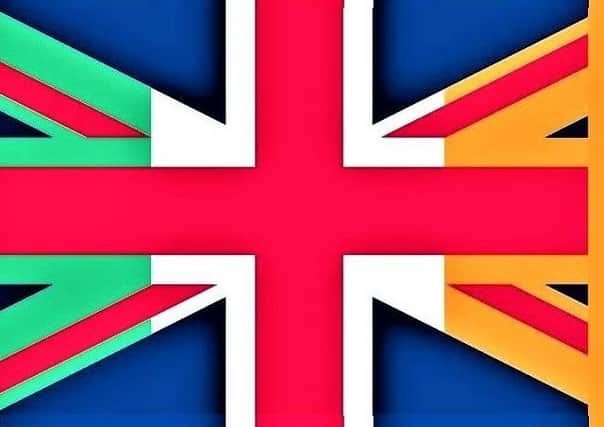Former DUP behind-the-scenes strategist: Details of how online polling firm LucidTalk operates are ‘eyebrow raising’


Lee Reynolds was commenting after a LucidTalk poll this week showed voter support for the DUP had plunged to 13% – behind the UUP and TUV (16% and 14% respectively).
This prompted nearly a hour-long grilling of LucidTalk boss Bill White on Monday’s Nolan Show over how exactly he gets his results.
Advertisement
Hide AdAdvertisement
Hide AdThe News Letter has been reporting on LucidTalk’s methods for years, particularly since they show far stronger support for Irish unity than some other polls – which is of vital importance, because under the Belfast Agreement strong public support for unity can trigger a real-life referendum.
LucidTalk has amassed a collection of 13,900 volunteers, and when time comes to do a poll, it e-mails some of those volunteers the questions.
This is quite different to Ulster University’s Life and Times Survey, which relies on real face-to-face interactions – and finds far lower support for a united Ireland.
As part of the Nolan interview, Mr White said that he gets an average of about 1.7 responses from each IP address when he runs his online polls.
Advertisement
Hide AdAdvertisement
Hide AdAn IP address is the unique number assigned to your laptop, mobile phone, and home router. It is used to identify who is surfing the web.
Getting 1.7 responses per IP address would mean if LucidTalk had 2,400 survey responses, they would have come form just 1,400 IP addresses – raising the possibility some people may be voting repeatedly.
Mr White acknowledged that “there’s a small number of people in our polls who vote twice, but we try to minimise it as much as possible”.
GIANT CORPORATE POLLSTERS SELDOM QUESTION PUBLIC IN NI:
Mr Reynolds, ex-DUP director of strategy and policy, said the 1.7 figure “would make me raise my eyebrows, because it’s putting a larger question mark around his sample”.
Advertisement
Hide AdAdvertisement
Hide AdHe added “there’s probably a strong emphasis on media to cast wide on its polling information, and to give the different polling equal promotion and equal emphasis” – in other words, the press should not be reliant on LucidTalk alone when reporting on the levels of support for Irish unity.
He added: “In polling terms, NI is a much smaller population to be dealing with. And therefore the ability of people to make mischief if they so desire is increased.
“And that’s why anybody wishing to produce sustained, credible results, needs every check and balance they can.
“The counter to that is because it’s such a small market, all of those checks will add to your costs [which is] one of the reasons why major polling companies, major internet polling companies, do not do significant business in NI.”
‘LUCIDTALK IS ONLY GAME IN TOWN... BUT THEY ARE ACCURATE’:
Advertisement
Hide AdAdvertisement
Hide AdMeanwhile Sir John Curtice, head of the British Polling Council (to which LucidTalk belongs), defended Mr White’s methods.
He said: “Broadly speaking, LucidTalk is the only game in town so far as regular political polling is concerned, as opposed to more academic work.
“And judging by the record of what he gets for the election results, it looks as though Bill manages to at least weight his data to such an extent he’s getting at least reasonably good answers by that metric.
“We can debate the merits of the exact detail of what he’s doing and how he’s getting there. But I suggest to you there may be trade-offs here, particularly within the context of NI, that he’s having to deal with.”
Advertisement
Hide AdAdvertisement
Hide AdBy this, he means that people may be less eager to reveal their support for a united Ireland in face-to-face interviews, and that therefore doing polls online could result in some respondents being more honest – an argument which Mr White himself has made too.
Mr White said LucidTalk’s methods are “globally recognised, and used by all major market research and polling companies worldwide”.
In January a LucidTalk poll put backing for Irish unity at 42.3%.
The firm had also produced similar results in 2018.
However, they strongly contrast with those produced by the Northern Ireland Life and Times studies – face-to-face polls of random addresses, run by Ulster
University.
Advertisement
Hide AdAdvertisement
Hide AdThese have shown varying support for Irish unity over the years, from a high of 30% in 2006, all the way down to 14% in 2015 – with the most recent figure (2019) showing that only 22% respondents believed Irish unity would be the best longterm policy.
More from this reporter:
A message from the Editor:
Advertisement
Hide AdAdvertisement
Hide AdThank you for reading this story on our website. While I have your attention, I also have an important request to make of you.
With the coronavirus lockdown having a major impact on many of our advertisers — and consequently the revenue we receive — we are more reliant than ever on you taking out a digital subscription.
Subscribe to newsletter.co.uk and enjoy unlimited access to the best Northern Ireland and UK news and information online and on our app. With a digital subscription, you can read more than 5 articles, see fewer ads, enjoy faster load times, and get access to exclusive newsletters and content. Visit www.newsletter.co.uk/subscriptions now to sign up.
Our journalism costs money and we rely on advertising, print and digital revenues to help to support them. By supporting us, we are able to support you in providing trusted, fact-checked content for this website.